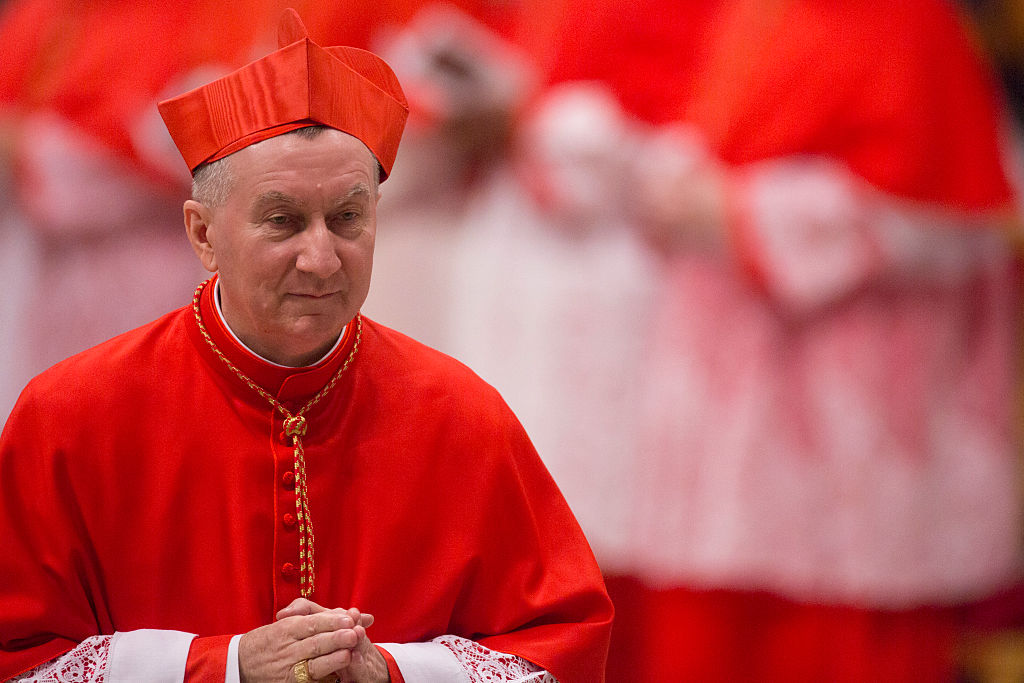There has been plenty of scaremongering over Russia’s activities in the past ten years. From the Russiagate hoax in Washington to slandering any populist-right party – from Berlin to Vienna to Paris to Sofia – as witting or unwitting Muscovite agents, “Russia Russia Russia” has been the establishment’s favourite cry. So one can excuse non-political folks for having tuned out the news about repeated Russian incursions into eastern Europe, particularly into Poland and the Baltics.
But unlike those past lies, these incursions are very real. Estonian airspace was recently violated by three Russian jets for at least 12 minutes, and the jets reportedly ignored signals from NATO pilots. Unlike the recent Russian drone incursion into Poland – which could, technically, have been done via spoofing (though this is unlikely) – these jets clearly did not accidentally find their way into Estonia for that period of time. Just before that, another Russian drone flew into Latvia, and unknown drones were spotted in Denmark and Lithuania.
Denmark likely has little reason to worry, as they are well away from Russia’s border. But the Baltic states are practically lined up for Russia. While these countries have built up their armed forces over the past few years significantly – and have increased civilian military participation – they are still absolutely tiny; Lithuania, the largest, is only about 65,000 square kilometres. Plus some areas, like Estonia’s Narva – a city which borders Russia – are majority Russian-speaking and may have populations which side with Russia in the event of something more than an airspace incursion.
The Baltic solution has been turning to NATO’s big boy club of the US, UK, Germany, France, and Turkey. But this is lacking.
President Donald Trump did endorse shooting down Russian jets over NATO territory, but he notably demurred on whether American troops would engage, saying, “It depends”.
As for France? Even after Russia’s seizure of Crimea, Paris was trying to sell Moscow two warships. With the exception of the Napoleonic era and the Crimean War, France and Russia do not have a large history of being adversaries; arguably, they have a longer history of being allies. That’s because their geographic positions are both threatened by a strong Germany; for France, the world will not end if the far-off Baltic states fall under Moscow’s control.
Germany historically has had a large attachment to the Baltics, which were once ruled by Baltic-German nobles. For hundreds of years, that region was a battlefield between various Russian and Germanic states. But the Soviet Union saw to the expulsion of those Germans, and, while German troops just partook in a NATO exercise there, Berlin is making clear that it will not be making any real investments into Baltic security, already pooh-poohing the idea of a “drone wall.”
What about the United Kingdom? It has made a show of defending Ukraine – seeking to extend their influence in south-eastern Europe – but only mentions the Baltics once in their 2025 National Security Strategy, and that is in the context of keeping Russian ships away from UK-adjacent waters.
Finally, there’s Turkey, which did recently send a radar plane to Lithuania. But Ankara is focused on developments in Syria and will not go to war with Russia over Tallinn.
This is all to say that relying on the 20th century way of thinking – large-scale, 30+ member military organizations – is likely not the best way for the Baltics to go. With the world becoming multipolar, they should instead be inspired by past instances of multipolarity and break out of 20th century thought. To do that, they should turn to another capital: Warsaw.
Poland has had fraught internal politics, and their government is divided between a nationalist president and a mushy-centrist prime minister. But both agree that Poland must be the most powerful nation in Europe. The country has supercharged its military spending and could credibly claim to have the most powerful military in the EU, other than perhaps France.
Poland, unlike the other countries listed here, actually has good reason to avoid the Russians re-taking the Baltics. Russia already has an exclave in Kaliningrad, which borders northern Poland and south-western Lithuania; taking the Baltics would allow them to fully threaten Poland from the north and east (via Belarus), an untenable situation.
As such, the Baltics – which are, as discussed, small but no slouches – should seek to form a four-member military alliance with Poland, agreeing to a clear mutual defence agreement. NATO’s dirty little secret is that Article V is virtually meaningless, as it only requires a response from another NATO member “as it deems necessary” – which can mean a sympathetic tweet or a box of Kevlar helmets. This is why Russia has been probing: To see where exactly the line for Article V lies.
But a Polish/Baltic Alliance – not quite a Polish-Lithuanian Commonwealth, though one could have fun coming up with various names to remind citizens of the historic ties of the 16th-18th centuries – could and should make clear that an attack on one requires the other members to engage militarily to drive the threat out. Russia will likely be hesitant to take on Poland (which was one of the only countries ever to beat the Soviet Union in a war), which is why it has focused on easier Baltic prey.
Doing this benefits Poland, which would see its stature rise, and obviously benefits the Baltic states by providing actual protection. It would likely be injurious to NATO, as the need for a new, smaller alliance would underline the uselessness of that organisation. This in turn would cause Brussels to fret, as the centre of power would rapidly shift toward Warsaw. But the Baltics and Poland should not risk their security because some feelings might get hurt.
The old world order is over, and the new is being born. All countries, including those at risk such as the Baltics, need to change their strategies to keep up with the times. Abandoning bulky, unserious organisations like NATO in favour of a smaller, Polish-led alliance would be a good place for them to start.





Brussels sells out Europe’s tobacco farmers and their 80,000 jobs to Beijing